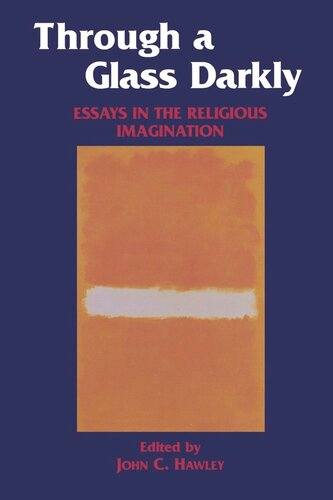

Most ebook files are in PDF format, so you can easily read them using various software such as Foxit Reader or directly on the Google Chrome browser.
Some ebook files are released by publishers in other formats such as .awz, .mobi, .epub, .fb2, etc. You may need to install specific software to read these formats on mobile/PC, such as Calibre.
Please read the tutorial at this link: https://ebookbell.com/faq
We offer FREE conversion to the popular formats you request; however, this may take some time. Therefore, right after payment, please email us, and we will try to provide the service as quickly as possible.
For some exceptional file formats or broken links (if any), please refrain from opening any disputes. Instead, email us first, and we will try to assist within a maximum of 6 hours.
EbookBell Team

4.3
68 reviewsThese essays, interdisciplinary in their approach, demonstrate the variegation of the religious imagination from the broadest historical and denominational scope. By examining the works of philosophers and theologians, of poets, painters, and novelists – from Saint Mark to Jacques Derrida and from Erasmus, Loyola, and Milton to Rouault to Andrew Greeley – the essayists seek to answer the question Jesus posed to his disciples: “Who do you say that I am?” and to anticipate the equally contentious query: “How do you say who I am?”
The essays together explore the religious imagination through the question of transcendence, using both the age-old Christian imagination and the contemporary world wherein the divisions between religious cultures are less fixed, an age of imaginative permeability where the absence of God is as present as the presence of God.